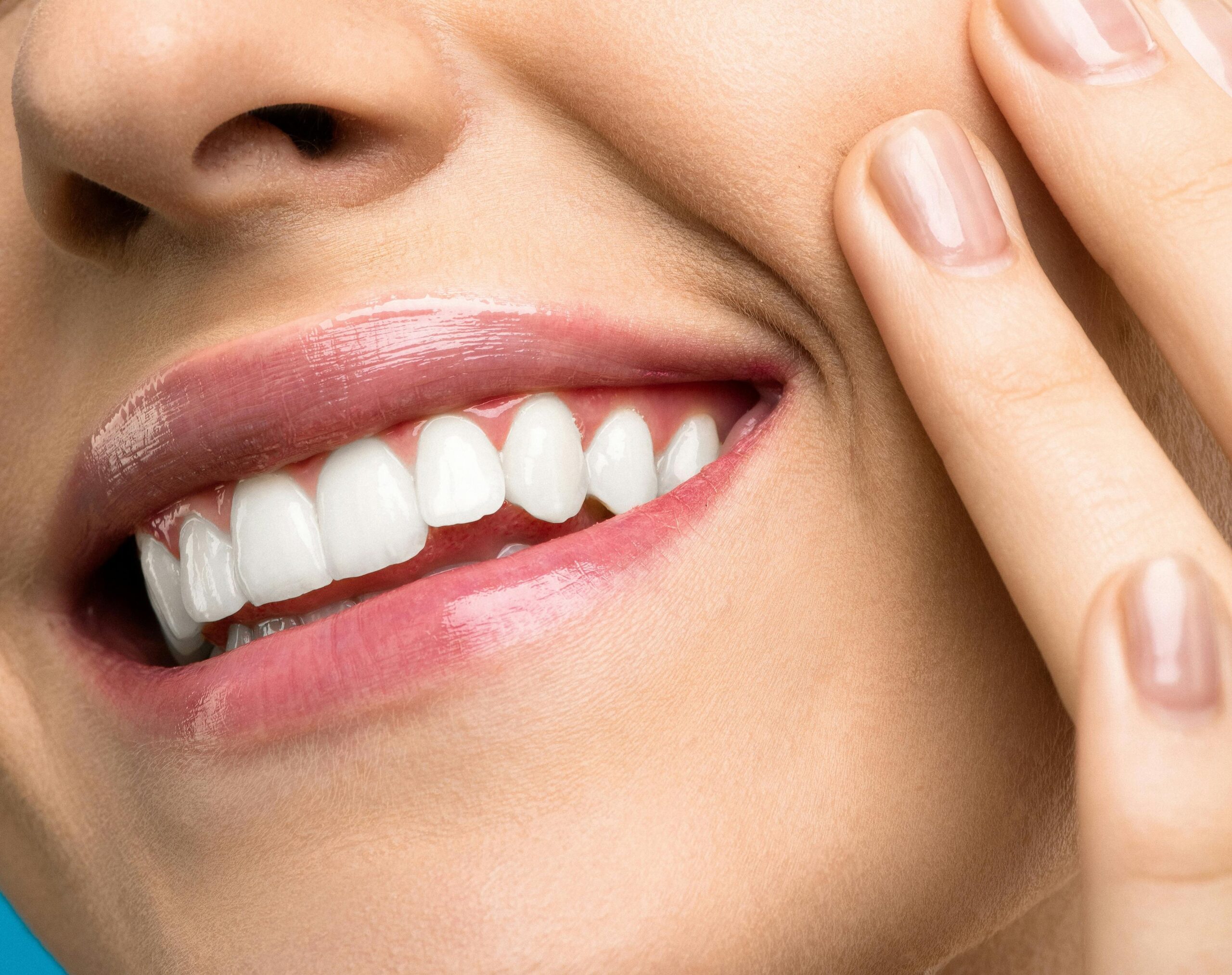6 Reasons to Make the Switch to Enzyme Toothpaste for Healthier Teeth and Gums
Enzyme toothpaste is gaining popularity for its unique benefits in promoting oral health, offering a promising alternative for those looking to improve their dental hygiene and combat conditions like gingivitis and periodontitis with enzymatic toothpaste.[1]By harnessing the power of natural ingredients and advanced enzyme systems, these toothpastes facilitate better plaque removal, pain relief, and can significantly enhance saliva quality, contributing to fresh breath and healthier gums through their enzyme formula.[1].

This article will explore the distinctive properties of enzyme toothpaste and its enzymatic action, delving into why it surpasses traditional formulas in maintaining oral health, preventing cavities, and supporting gum health through preventive dentistry.[1]Through a blend of scientific evidence and health benefits, readers will understand why making the switch could lead to a significant improvement in their oral hygiene routine.[1].
What Makes an Enzyme Toothpaste Unique
Enzyme toothpastes distinguish themselves through their inclusion of specific enzymes such as amylase, lysozyme, and glucose oxidase. These enzymes are crucial as they break down complex carbohydrates, combat harmful bacteria, and reduce gum inflammation, promoting overall oral health with enzymatic toothpaste.[1]Additionally, the presence of natural ingredients in some enzyme toothpastes caters to those seeking eco-friendly or organic oral care solutions, like eco balance toothpaste.[1].
Enzymatic Action Explained
The effectiveness of enzyme toothpastes largely stems from their enzymatic action. This process involves the atmospheric oxygen-triggered conversion of D-glucose into D-glucono-1.5-lactone and hydrogen peroxide, which are compounds known for their antimicrobial properties, explaining how enzymatic toothpaste works.[2]This reaction not only helps in maintaining oral hygiene but also supports the natural defenses of the mouth with its antimicrobial effects.
Scientific Support for Enzyme Toothpaste
Research underscores the benefits of enzyme toothpastes. A particular study highlighted that toothpastes containing enzymes and proteins could enhance the natural defenses of saliva. This augmentation leads to a healthier bacterial community in the mouth, increasing the presence of bacteria associated with gum health and decreasing those linked to periodontal disease, thus improving oral hygiene.[3].
Specialized Formulations for Enzyme Toothpaste
Enzyme toothpastes are not just for humans; there are specialized formulations for pets too. For example, C.E.T.® Enzymatic Toothpaste for dogs and cats features a dual-enzyme system designed to be safe without foaming agents and is available in flavors that are appealing to pets, making it an effective enzyme toothpaste for dogs.[4]Similarly, Zymox Oratene Toothpaste Gel offers a brushless solution with two patented enzyme systems, targeting harmful oral bacteria and fungi while balancing the oral microbiome in pets, making it an ideal enzymatic toothpaste for cats.[5].
Innovations in Enzyme Toothpaste
The continuous innovation in this field is highlighted by companies like Creative Enzymes, which recently introduced a new enzymatic toothpaste specifically designed to break down biofilm on teeth and gums, enhancing oral health.[6]Furthermore, products like Zendium incorporate a three-enzyme system that not only generates hydrogen peroxide but also provides additional antimicrobial benefits through its protein components, showcasing the power of enzymatic toothpaste.[3].
These unique properties and scientific advancements make enzyme toothpastes, with their innovative and effective solutions, a superior choice for those looking to enhance their dental care routine.
Benefits of Enzyme Toothpaste Over Traditional Formulas
Enzyme toothpastes offer several advantages over traditional formulas, particularly in enhancing oral health through natural biochemical reactions. Here, we explore these benefits in detail, emphasizing the role of enzymatic toothpaste.
Enhanced Anti-Plaque and Anti-Gingivitis Effects in Enzyme Toothpaste
Studies have shown that enzyme-containing toothpastes, like the best plaque toothpaste, are effective in reducing plaque and gingivitis. When exposed to oxygen, these toothpastes exhibit significant anti-plaque and anti-gingivitis effects, providing a protective benefit even in less accessible regions during brushing.[2]This is particularly important for maintaining oral hygiene in areas that are difficult to reach with a toothbrush, underscoring the importance of thorough toothbrushing.
Improved Oral Microbiome in Enzyme Toothpaste
The inclusion of enzymes in toothpaste can lead to a healthier oral microbiome. A scientific study reported that enzyme toothpastes not only increase the levels of natural antimicrobials like hydrogen peroxide and hypothiocyanite but also promote a shift in the bacterial community, contributing significantly to oral hygiene.[3]. Such changes are crucial for long-term oral health and gum disease prevention.
Benefits for Sensitive Teeth and Gums from Enzyme Toothpaste
Enzyme toothpastes are often less abrasive than traditional toothpastes, making them ideal for individuals with sensitive teeth or gums.[1]Their gentle formulation helps prevent irritation while still effectively cleaning the teeth and gums.
Reduction in Plaque and Tartar Buildup
Regular use of enzyme toothpaste can significantly reduce the buildup of plaque and tartar [1]This is due to the enzymatic action that helps break down substances leading to tartar formation, ensuring tartar control, keeping teeth cleaner and healthier.
Support for Natural Salivary Defenses
Enzyme toothpastes enhance the natural defenses found in saliva, contributing significantly to oral hygiene. By augmenting these defenses, enzyme toothpastes help maintain a balanced oral environment conducive to health rather than disease.[3]This is particularly beneficial in enhancing the mouth’s ability to naturally combat bacteria and maintain pH balance.
Oral Health Enhancement Without Harsh Chemicals in Enzyme Toothpaste
Enzyme toothpastes, recognized as enzymatic toothpaste, leverage naturally derived enzymes, hydrogen peroxide, and oxygen to create reactions that defend teeth and gums from harmful bacteria. This enzymatic action removes stains and protects enamel without the need for harsh chemicals, making it a safer alternative for daily oral care.[9].
These benefits underscore why enzyme toothpastes, known for their enzymatic toothpaste formula, are not just different but potentially superior to traditional toothpaste formulas, offering a natural, effective approach to oral hygiene that supports overall dental health.
Scientific Evidence Supporting Enzyme Toothpastes
Efficacy in Plaque and Gingivitis Reduction
- Controlled Trials and Plaque Metrics: A randomized controlled trial reported no significant differences in white spot lesion index (WSL), gingival bleeding index (GBI), and visible plaque index (VPI) across various toothpaste types. However, enzyme-containing dentifrices, a type of enzymatic toothpaste, showed significant decreases in GBI and VPI, unlike natural dentifrices.[7].
- Supporting Immune Responses: Research from the University of Zurich suggests enzyme toothpastes, known for their enzymatic toothpaste and plaque control properties, can bolster host immune responses, aiding in plaque reduction and gum health enhancement.[2].
- Anti-Gingivitis and Anti-Plaque Effects: An in vitro study showed that enzyme toothpastes, recognized for their enzymatic toothpaste and gingivitis-fighting properties, have notable anti-gingivitis and anti-plaque properties, significantly differing from the effects of water rinsing.[2].
Impact on Oral Microbiome and Caries Prevention from Enzyme Toothpaste
- Oral Microbiome Enhancement: A clinical study demonstrated that enzyme and protein toothpastes, celebrated for their role in oral hygiene as enzymatic toothpaste, significantly alter the oral microbiome, increasing beneficial bacteria linked to gum health and reducing those associated with periodontal disease.[3].
- Caries Experience in Children: A study focusing on children with high caries experience found that enzyme and protein toothpastes, a type of enzymatic toothpaste, significantly inhibit plaque re-growth compared to fluoride toothpastes.[10].
Whitening Efficacy and Enamel Safety
- Enzyme Whitening Toothpaste: A novel enzyme-based whitening toothpaste, perfect for those seeking teeth whitening solutions, was shown to generate effective bleaching agents during brushing, without significantly altering enamel surface morphology.[11].
- Enamel Safety: This toothpaste maintained enamel microhardness within safe limits, confirming its efficacy and safety for regular use.[11].
Long-Term Gum Health Improvement
- Three-Month Clinical Study: Over a three-month period, a study compared the gum health of individuals using an enzyme and protein toothpaste versus those using a commercial fluoride toothpaste. Results indicated better plaque and gingival scores in the enzyme toothpaste group, suggesting significant long-term benefits for toothpaste gum health, highlighting the effectiveness of enzymatic toothpaste.[12].

Conclusion
Throughout this discussion, we have uncovered the unique benefits and scientific backing that set enzymatic toothpastes apart from traditional toothpaste options. The inclusion of specific enzymes, combined with natural ingredients, not only promotes better oral health but also supports the body’s natural defenses against dental diseases. By breaking down plaque, reducing tartar buildup, and enhancing the saliva’s protective qualities, enzymatic toothpastes offer a holistic approach to dental care that can lead to healthier teeth and gums, emphasizing their role in tartar control.
Given the evidence presented, the switch to enzymatic toothpaste could be a significant step forward for individuals seeking a more natural and effective solution to oral hygiene. The advancements in enzyme technology highlight a growing recognition of the importance of using biochemical reactions to maintain oral health. As we continue to prioritize our dental care routines, incorporating enzymatic toothpastes could greatly contribute to our overall well-being, underscoring the importance of choosing products that support the body’s natural processes for long-term health benefits.
FAQs
What advantages do enzymes provide when included in toothpaste?
Enzyme-infused toothpaste aids in maintaining gum health and helps to minimize the buildup of plaque on teeth, making enzymatic toothpaste a key player in oral care.
Is it beneficial for people to use enzymatic toothpaste?
Enzymatic toothpaste can help maintain a healthy balance of oral flora and address issues such as bad breath caused by detrimental bacteria in the mouth. However, while enzymes can be beneficial, they may not always keep teeth completely clean, hence regular dental cleanings are recommended for optimal oral hygiene, reinforcing the importance of enzymatic toothpaste in oral care routines.
Do enzymes contribute to dental health?
Yes, enzymes are a crucial component of saliva, which plays a vital role in oral health. Enzymes like amylase and lysozyme combat tooth decay and diseases by breaking down food particles, neutralizing harmful bacteria, and safeguarding teeth and gums. To bolster these natural defenses, it’s important to stay hydrated and maintain good oral hygiene practices.
Which enzymes are effective in preventing tooth decay?
Beta-mannanase has been identified as a particularly effective enzyme in preventing tooth decay, performing 2.5 times better than other enzymes such as beta-mannosidase and alpha-mannosidase in combating dental issues, showcasing the potential of enzymatic toothpaste in dental care.
References
[1] – https://www.sciencedirect.com/science/article/pii/S0300571218306560
[2] – https://www.ncbi.nlm.nih.gov/pmc/articles/PMC7835853/
[3] – https://www.nature.com/articles/srep43344
[4] – https://us.virbac.com/home/our-products/pagecontent/product-selector/cet-enzymatic-toothpaste-dog-cat.html
[5] – https://www.pbsanimalhealth.com/zymox-oratene-enzymatic-brushless-oral-care-toothpaste-gel/p/15059/
[6] – https://www.bio-itworld.com/pressreleases/2023/04/06/creative-enzymes-launches-revolutionary-enzyme-for-toothpaste-to-improve-oral-health
[7] – https://www.ncbi.nlm.nih.gov/pmc/articles/PMC6617311/
[8] – https://www.cinoll.com/blog/guide-the-pros-and-cons-of-enzyme-toothpaste/
[9] – https://www.colgate.com/en-us/oral-health/selecting-dental-products/how-does-enzymatic-toothpaste-work
[10] – https://www.ncbi.nlm.nih.gov/pmc/articles/PMC7781222/
[11] – https://www.colgateprofessional.com/dentist-resources/practice-management/research-presented-at-iadr-2021
[12] – https://research-information.bris.ac.uk/files/184567329/A_randomised_clinical_trial_to_determine_the_effect_of_a_toothpaste_final.pdf


